At its annual summit, the African Union reverses its position on deploying troops to Burundi in favor of a high-level negotiating delegation
Security challenges, including ongoing unrest in Burundi and South Sudan as well as the mounting threat of terrorism, dominated the 26th annual African Union (AU) summit held in Addis Ababa from January 21-31, 2016. At the top of the agenda was the creation of a plan to contain the escalating violence in Burundi, which erupted following President Pierre Nkurunziza’s disputed third-term election in July 2015. Since then, both government forces and opposition groups have engaged in armed attacks on one another and civilians. The most deadly assault to date occurred in Bujumbura on December 11-12, 2015 as government forces responded to attacks on three military camps by killing nearly 130 individuals, many of whom are thought to have been civilians living in opposition-oriented neighborhoods.
Soon after these attacks, the 54-member continental body declared it would send 5,000 troops to Burundi to help quell the unrest—with or without the Burundian government’s consent—as permitted under Article 4(h) of the AU’s Constitutive Act, which allows the General Assembly to authorize intervention in a member state in cases of “grave circumstances, namely: war crimes, genocide, and crimes against humanity.” It reversed this decision last week, however, when Nkurunziza refused to consent to the AU forces and stated that any deployment of troops in Burundi would be tantamount to an invasion. In turn, the AU concluded that a high-level delegation should be sent to the capital of Bujumbura to negotiate a peace deal instead. Still, observers have expressed concerns that mediation has thus far failed in restoring order in Burundi since the Burundian government dropped out of peace talks in January 2016 due to apprehension over other stakeholders involved in the negotiations, including members of the opposition.
World Bank casts doubts over outlook of the South African and Zimbabwean economies
This week the World Bank released its economic updates for South Africa and Zimbabwe for 2016. As with most emerging markets, both countries are facing challenges from weaker commodity prices, lower Chinese demand, and rising U.S. interest rates.
According to the report for South Africa, which was released on Tuesday in Pretoria, the forecast for real gross domestic product growth is at 0.8 percent in 2016, down from 1.3 percent in 2015—the lowest rate of growth since 2009. The World Bank’s outlook is in line with that of the International Monetary Fund, which estimates expansion of only 0.7 percent in South Africa this year. Last week, South Africa’s central bank had cut its forecast to 0.9 percent as well. The rand has plunged against the dollar over the last few months, and credit-rating companies had already downgraded the nation’s debt at the end of last year. The forecast for Zimbabwe was equally dire: According to the report for Zimbabwe, the economy is forecasted to grow at 1.5 percent this year (slower than the government’s estimate of 2.7 percent), and consumer prices are expected to remain deflationary.
Nigeria faces a rough week due to low oil revenues, corruption, and Boko Haram
This week, the Nigerian government has been reportedly seeking loans from the World Bank, the African Development Bank, and other donors, including the China’s Exim bank, to bridge its budget deficit. In the past, Nigeria had used its oil revenues for budgetary needs, though due to the slumps in oil prices these revenues are no longer a reliable resource. However, in a statement released on Monday, Nigerian Finance Minister Kemi Adeosun clarified that the quest for loans is still under consideration. He noted that Nigeria has yet to apply for a loan, as the government is still considering other options.
Meanwhile, PricewaterhouseCoopers released a report titled the “Impact of Corruption on Nigeria’s Economy.” The report found that corruption will cost Nigeria 30 percent of its GDP by 2030 if not dealt with properly. This corresponds with the Corruption Perception Index compiled by Transparency International last week according to which Nigeria ranks 32nd from the bottom out of 168 countries surveyed.
In other news, last weekend Boko Haram conducted a deadly series of attacks, leaving 86 people dead and several injured. Saturday night, militants opened fire and set several houses on fire in a village near Maiduguri in Nigeria’s Borno State. In response, on Tuesday, the Nigerian Air Force conducted air strikes, reportedly destroying a Boko Haram logistics base. In the last five years, Boko Haram, a group deemed deadlier than ISIS, has killed 20,000 people and forced 2.3 million people away from their homes.
The Brookings Institution is committed to quality, independence, and impact.
We are supported by a diverse array of funders. In line with our values and policies, each Brookings publication represents the sole views of its author(s).
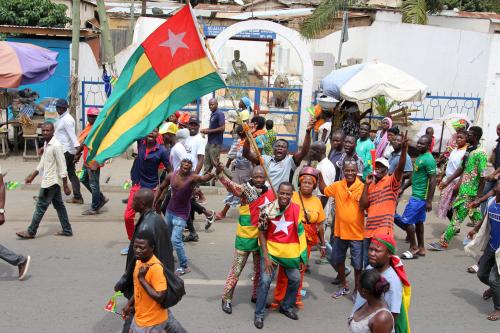
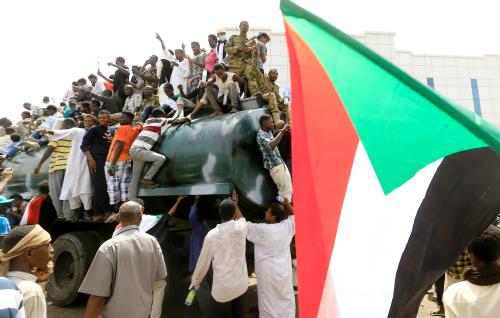
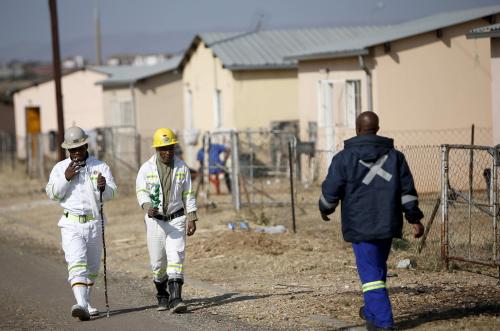
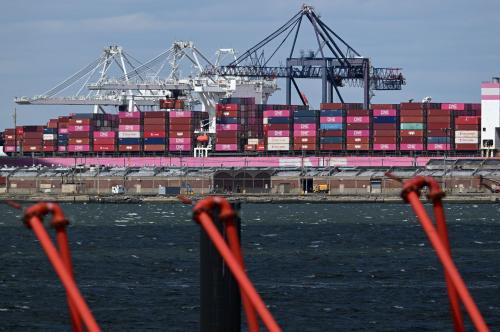
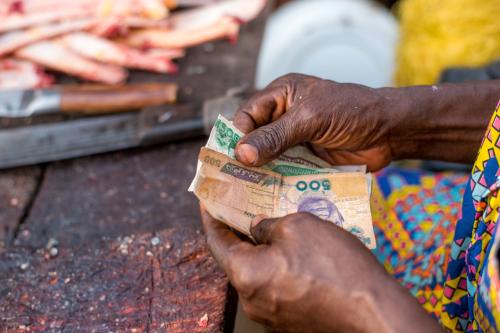
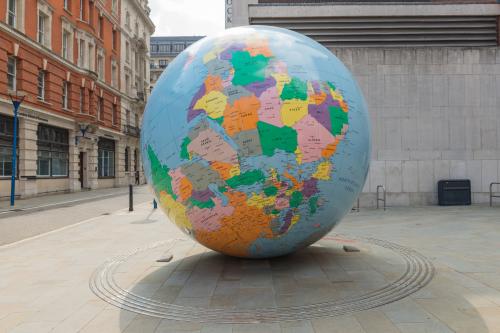
Commentary
Africa in the News: AU won’t deploy troops to Burundi, South Africa’s and Zimbabwe’s growth forecasts lowered, and Nigeria has a rough week
February 5, 2016